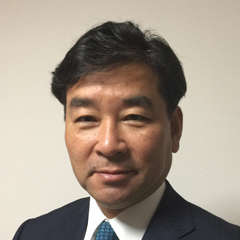Introduction
This pandemic is not the first one in human history. To the best of my knowledge, the occurrence of a pandemic dates back to the sixth century. Since then, pandemics have occurred many times almost periodically on a global scale. How could humanity overcome such critical situations that occurred many times? Frankly speaking, humanity has overcome them through a combination of both isolation and the use of vaccines. Given that the vaccine was invented not so long ago and that it takes time to develop a vaccine, it is certain that isolation was an extremely effective means.
Responses to COVID-19 are different from country to country. Some countries have quickly imposed restrictions on going out with penal provisions through the government’s legal force, while other countries expect people to refrain from going out by making a request to do so, like Japan. The timing of issuing the declaration of a state of emergency varies from country to country. Many foreign countries in which there are many infected persons and deaths due to COVID-19 have expressed concern about whether Japan is really all right. Many warnings that it is possible that Japan will also fall into a critical situation similar to those in other countries have been given. Can Japan overcome this critical situation by making requests on the basis of Japanese virtue? The concept of cost and benefit is very important in economics regarding decision-making by individuals, not to mention that by the government. Here, let us think about the details of Japan’s having resulted in issuing the declaration of a state of emergency and emergency economic measures incidental thereto, from the concept of cost and benefit.
Benefit and cost
In economics, the general thought is that people act as they weigh benefit against cost. When we take certain action, the action will yield a benefit. For example, when a consumer gets a haircut at a barber shop, the consumer will enjoy a benefit or subjective satisfaction from the haircut. On the other hand, the consumer has to pay a fee to the barber shop. The fee is a monetary cost. If the consumer is not satisfied with his/her hairstyle after the haircut, the benefit will decrease. If the consumer feels the subjective benefit is lower than the monetary cost paid by him/her, the consumer may never go to the barber shop again. The consumer has decided whether or not he/she will go to the barber shop exactly by comparing benefit with cost. Economics considers cost, including the monetary cost as mentioned in the above case, generally from the concept of opportunity cost. When you take certain action, you will miss many other opportunities by taking the action. If you go to a barber shop, you cannot go to a restaurant at the same time. In economics, a cost for an opportunity which yields the highest benefit, of benefits got from all the opportunities which you may miss, is defined as opportunity cost incurred in taking certain action. Suppose that there are three investment opportunities A, B and C. Benefits from those three investment opportunities are 10, 20, and 5, respectively. In that case, the cost of taking investment opportunity A is 20. This is because you have to give up the idea of taking investment opportunities B and C by taking investment opportunity A. Benefits from investment opportunities B and C are 20 and 5, respectively. The highest benefit you may lose by taking investment opportunity A is 20. So, when you take investment opportunity A to get a benefit of 10, you will incur a cost of 20. In that case, net benefit (benefit minus cost) from investment opportunity A is minus 10. Thinking in this way, net benefit from investment opportunity B is 10 (a benefit of 20 minus a cost of 10), so taking investment opportunity B is the wisest policy.
Next, let us think about the declaration of a state of emergency in terms of benefit and cost.
Issue of declaration of a state of emergency
The issue of the declaration of a state of emergency involves benefit and cost. So, what is the benefit? In other words, what is the most desirable situation now? It is obviously the containment of COVID-19. With COVID-19 having been contained, the whole of society can enjoy benefits. How can we achieve the containment with the containment being the most desired outcome? As mentioned above, the key to containment is isolation and the use of vaccines, historically. While people are waiting for a vaccination, isolation is still an effective means now. In the present situation, where it is impossible for a state to force isolation on people with legal force, unlike in medieval times, it is certain that staying at home is the only solution. Medical experts have emphasized that point from the beginning. Epidemiologically, staying at home, and starting that as soon as possible, may be the only desirable way. A request to suspend business has been made simultaneously with the request to stay at home. What is the cost incurred in staying at home, especially in the request to suspend business? Many restaurants may suffer significant economic loss from closing down. That loss may be a cost. Of course, the fatigue of staying at home may also be part of the cost. In that way, let us think about the timing of the issue of the declaration of a state of emergency. The heads of several great cities expected the government to issue the declaration of a state of emergency earlier. Foreign countries have also pointed out that the Japanese government issued that declaration too late. From the viewpoint of economics, it can be considered that the government might have issued the declaration at that time as it might have wished to minimize costs, namely economic losses, to as little as possible after it weighed the benefits against costs. So, can we really minimize economic loss by postponing making a request to suspend business as late as possible? How much a lag of one day may be fatal to the containment of COVID-19 is immeasurable. That leaves the question of whether the timing of the issue of the declaration was too late as the government attached too great importance to the economy. This is because what this country desires most now is the containment of COVID-19, as mentioned above.
Time axis in policy assessment – Short term and long term
Grounds for postponing a request to suspend business or staying at home as late as possible may be an economic loss. Certainly, in the short term, it may be desirable to maintain the current economic environment for a longer time. However, in the long term, is such a policy desirable for the whole economy? Containment as soon as possible is desirable, economically. This is because the longer the war on COVID-19 lasts, the more the economy is impoverished. Then, economic recovery would take a huge amount of cost. If decision-making on policy was delayed for economic reasons, the government might have acted from a short-term viewpoint. In the long run, isn’t it a measure to minimize economic loss to commit to staying at home and suspending business thoroughly? In estimating the effects of a policy, it is important to estimate those effects by a measure of time.
Staying at home and request to suspend business
This country’s declaration of a state of emergency is not basically a declaration with legal force. It is a declaration appealing to Japanese virtue or faithfulness and conscience. In social science, to control behavior, a method may be to achieve a socially desirable situation by specifying rules by law and applying penal provisions to a violation of those rules, and another method may be to lead people to a socially desirable situation by giving incentives to the people. Many economic ideas call for the latter method. The cooperative money proposed by Governor Koike while the declaration of a state of emergency without legal force and penal provisions was issued is this latter method. It is a measure to create a state of business suspension by giving incentives. The containment of COVID-19 is the highest purpose, so the measure taken by Governor Koike can be appreciated from the viewpoint of economics.
Emergency economic measures and financial resources therefor
Measures to distribute masks and to pay 100,000 yen per person were implemented. Those measures can also be considered in terms of benefit and cost. The costs can be monetarily calculated to a large extent. A public fund of more than 40 billion yen, for example, was invested in distributing masks. How much may the whole nation get gross benefit from distributing a pair of masks to each family member? Moreover, by investing a large amount of that public fund in the distribution of masks, the public fund cannot be used for other measures. Can’t a higher benefit be achieved for the whole of society by spending the public fund on benefits for medical workers and improvements to their tight working environment?
Moreover, the income security altered hastily had been a plan to pay money in a limited way to persons who suffered a more serious loss, at the beginning. It is an idea that better security should be offered to persons who suffer a more serious loss. It has been pointed out from the beginning that terms for limited payment are complex and difficult. However, firstly, it is an idea that limited payment is fair. Certainly, given that the whole Japan has suffered a lot of losses and damage, it may be important to provide benefits widely to more people. An important thing is to earnestly question what the first purpose was and whether a measure to pay 100,000 yen to each citizen at this stage is an advantage or disadvantage to the priority of containing COVID-19. Anyway, it is extremely important for the whole country to faithfully consider what policy is most effective and at what time the policy should be implemented, taking into account its benefit (plus) and cost (minus), as we rid ourselves of selfish ideas.
How should a huge amount of new financial resources be secured for those emergency economic measures? In addition to expenditure from reserve funds, the government cannot avoid relying on the issue of government bonds. The issue of bonds is the transfer of these debts to the future, so the cost ought to be borne by generations fairly in every way possible over a long period. It is natural that the future burden is hard to discuss in the present situation. However, everything is limited. Resources are limited, so it is important to spend the current debts effectively. The government should put into action policies with which the people can be satisfied, fully considering the benefits and costs resulting from the investment of public funds.
Policy assessment
COVID-19 must be contained as soon as possible. Having said that, after the containment, the related policies have to be assessed regarding their effects. The right assessment is the right preparations for future crises. The Graduate School of Governance Studies offers many excellent classes on policy assessment, including how to assess a policy and what to consider regarding policy formulation.
*The information contained herein is current as of May 2021.
* The contents of articles on Meiji.net are based on the personal ideas and opinions of the author and do not indicate the official opinion of Meiji University.
* I work to achieve SDGs related to the educational and research themes that I am currently engaged in.
Information noted in the articles and videos, such as positions and affiliations, are current at the time of production.


